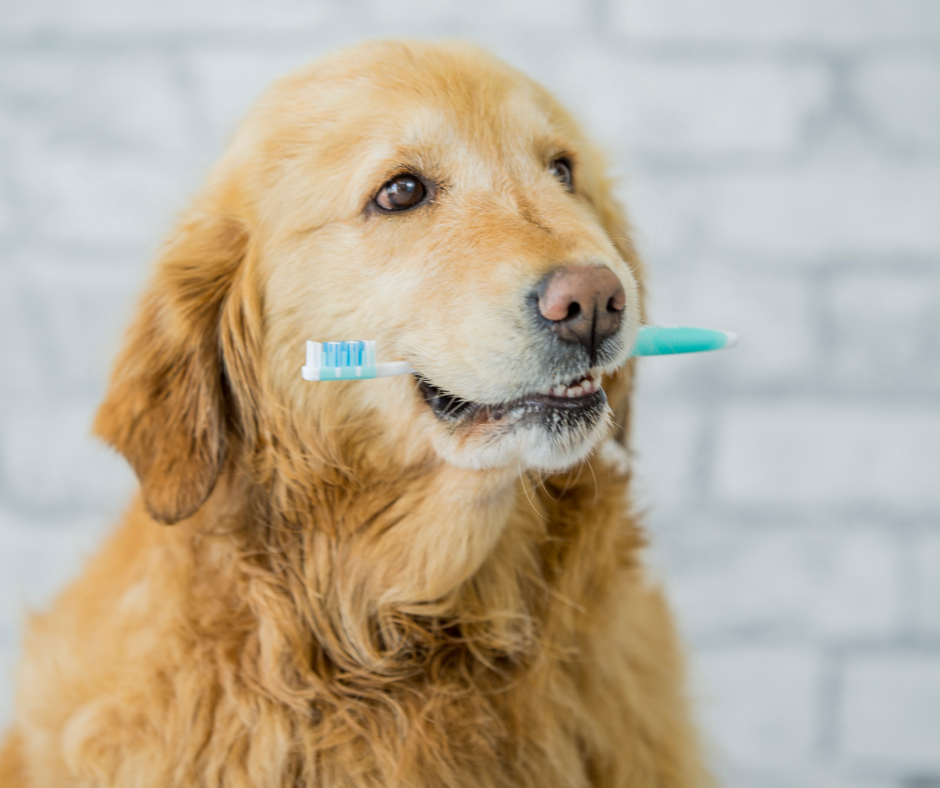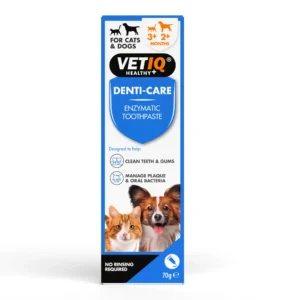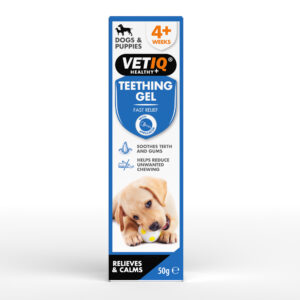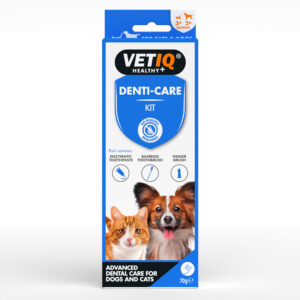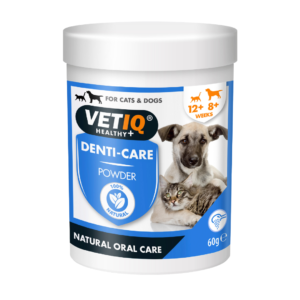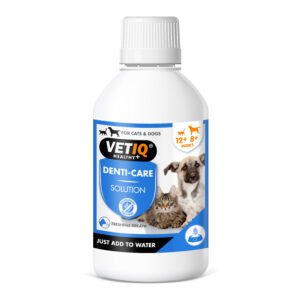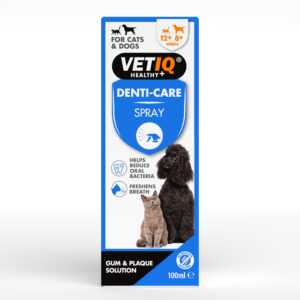Many have wondered why their pet has bad breath. I mean, don’t get me wrong, we love our pets! We love to play with them, train them, scratch them and snuggle them. And they love us back! There’s often nothing they want more than to get up close and personal to cover us with kisses.
But there’s very little to love about their smelly breath!
Few smells are quite as pungent as a dog or cat with smelly breath. Many people think that their beloved pet just naturally has bad breath and that it’s normal, but it’s not necessary for dogs or cats to have bad breath.
Why your pet might have bad breath and steps to improve it
Bad breath or ‘dog breath’, as many dog owners dub it, can be a sign of an underlying health problem that needs to be resolved. And while we all love our pets, it would be easier to spend time with them if they didn’t have awful breath!
So, before writing it off as a quirk you can come to overlook, it’s good to do some research about why your pet might have bad breath and what steps you can take to improve it.
Why does my dog have bad breath?
The most common reasons for dogs to have bad breath are:
1. Oral hygiene and periodontal disease
Poor oral hygiene and periodontal disease are the most common causes of bad breath in dogs. Just like in humans and cats, the build-up of plaque and tartar leads to the development of the odour-producing bacteria that causes smelly breath.
If your dog is not a chewer and you do not regularly clean their teeth, they will consistently have plaque build-ups. As with cats, bad oral hygiene can lead to periodontal disease which results in inflamed gums, cavities, infections, and tooth loss. Plus very smelly breath!
2. Nasty eating habits
We love our dogs, but sometimes they can be gross. Dogs are known scavengers. This means they’ll eat a lot of unsavoury things, most of which smell pretty bad. This includes eating rubbish, animal remains, and cat poop – none of which smell great!
As if cat poop wasn’t bad enough, coprophagia is a common condition in which some dogs eat their own or another dog’s poop. This condition certainly causes smelly breath, not to mention causing horror for owners. It’s disgusting, but it’s more common than many dog owners realise.
3. Diabetes
While it might not be a bad smell, sweet or fruity breath can indicate that your dog may have diabetes. If your dog has a sweet smell to their breath, you should make an appointment with your veterinarian.
4. Kidney disease
Another unpleasant smell that might come from your dog’s mouth might be the smell of urine, and this can be an indication that they may have kidney disease. So again, If your dog’s breath smells like this, you should make an appointment with your veterinarian.
Why does my cat have bad breath?
The most common reason for cats to have bad breath is that they have:
1. Gingivitis
Gingivitis is an inflammation of the gums. It is considered to be the earliest stage of periodontal disease and can be reversed with the proper care. A build-up of plaque results from the collection of food, debris, bacteria, dead skin cells and mucous and It can form within 24 hours on clean tooth surfaces.
Inflammation of the gums and a build-up of plaque can indicate gingivitis and it is the bacteria in the plague that give off the pungent odour you are noticing.
2. Periodontal disease
Periodontal disease is a mouth disease which includes both the teeth and gums, and veterinarians tend to agree that it is the most common cause of bad breath in cats and it can lead to tooth loss, bleeding gums and pain.
The cause of the disease is the same in cats and dogs as it is in people. It is an infection that results from the build-up of soft dental plaque on the surfaces of the teeth around the gums. A build-up of plaque often leads to infection in the bone surrounding the teeth. In just a few days, plaque can harden into tartar, making it easier for more plaque to accumulate.
Brownish tartar, drooling, inflamed gums and difficulty eating are signs that your cat has periodontal disease and should be taken to the vet.
3. Stomatitis
Stomatitis is an inflammation of the soft tissues in your cat’s mouth, including their gums, tongue and cheek. Cats are prone to developing this condition, usually due to dental disease, but sometimes due to other bacteria, viruses or allergies. It can also be caused by infectious diseases and injuries to the mouth as well as several metabolic disorders, including lymphoma, uremia, diabetes and others.
Your vet can advise you if your cat needs further testing to check for infections such as FIV and Calicivirus.
4. Diet
Dietary issues can contribute to bad-smelling breath. Fish or liver-based ingredients can contribute to the smell. Cats are inquisitive and like to chew on strange foreign objects and particles can get lodged in their mouth and pick up bacteria.
Because cats often don’t show signs of distress, it’s a good idea to use both preventive treatment and regular examination of their teeth and gums to ensure they remain healthy.
How do I get rid of my pet’s bad breath?
As important as it is to understand the underlying issues behind malodorous doggie breath, Once you have a fair idea of what’s behind your dog or cat’s smelly breath, what we want to know is how we can get rid of it and prevent it from coming back!
If plaque or tartar buildup is the area behind your pet’s bad breath, then the answer is to improve their oral hygiene. One good step would be to organise a teeth cleaning with your veterinarian.
If your pet has bad breath, it’s the VETIQ Dental Range to the rescue!
The VetIQ dental care range will help resolve bad breath issues in both dogs and cats and the good news is that if you’re looking for natural remedies, the entire VetIQ range is based on safe, natural ingredients.
Used alone or in combination, VetIQ’s range of oral health products provides excellent dental health and gives you a pet you’re happy to get up close with! Check our stockist’s page to find your nearest VetIQ Denti-Care provider.




